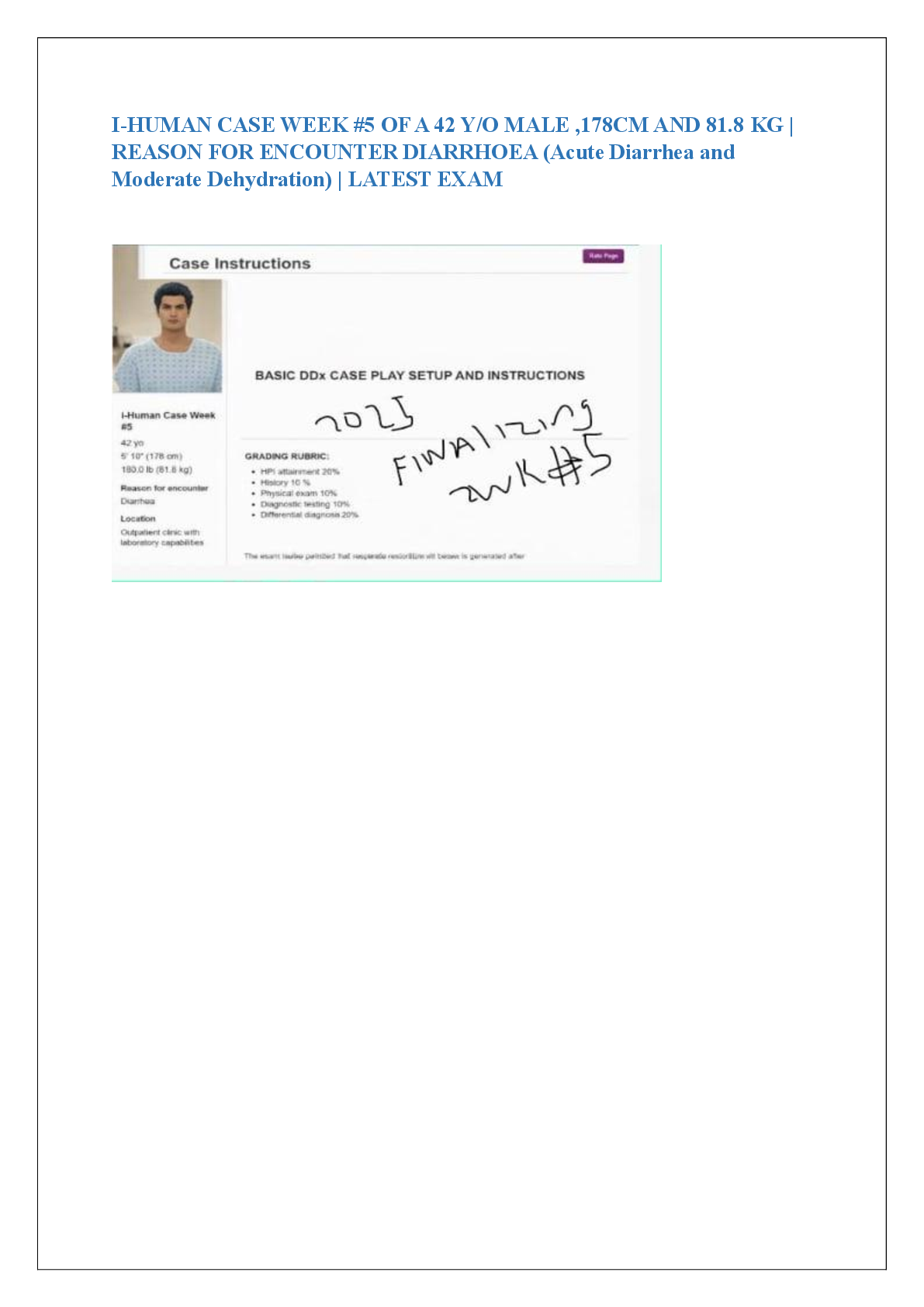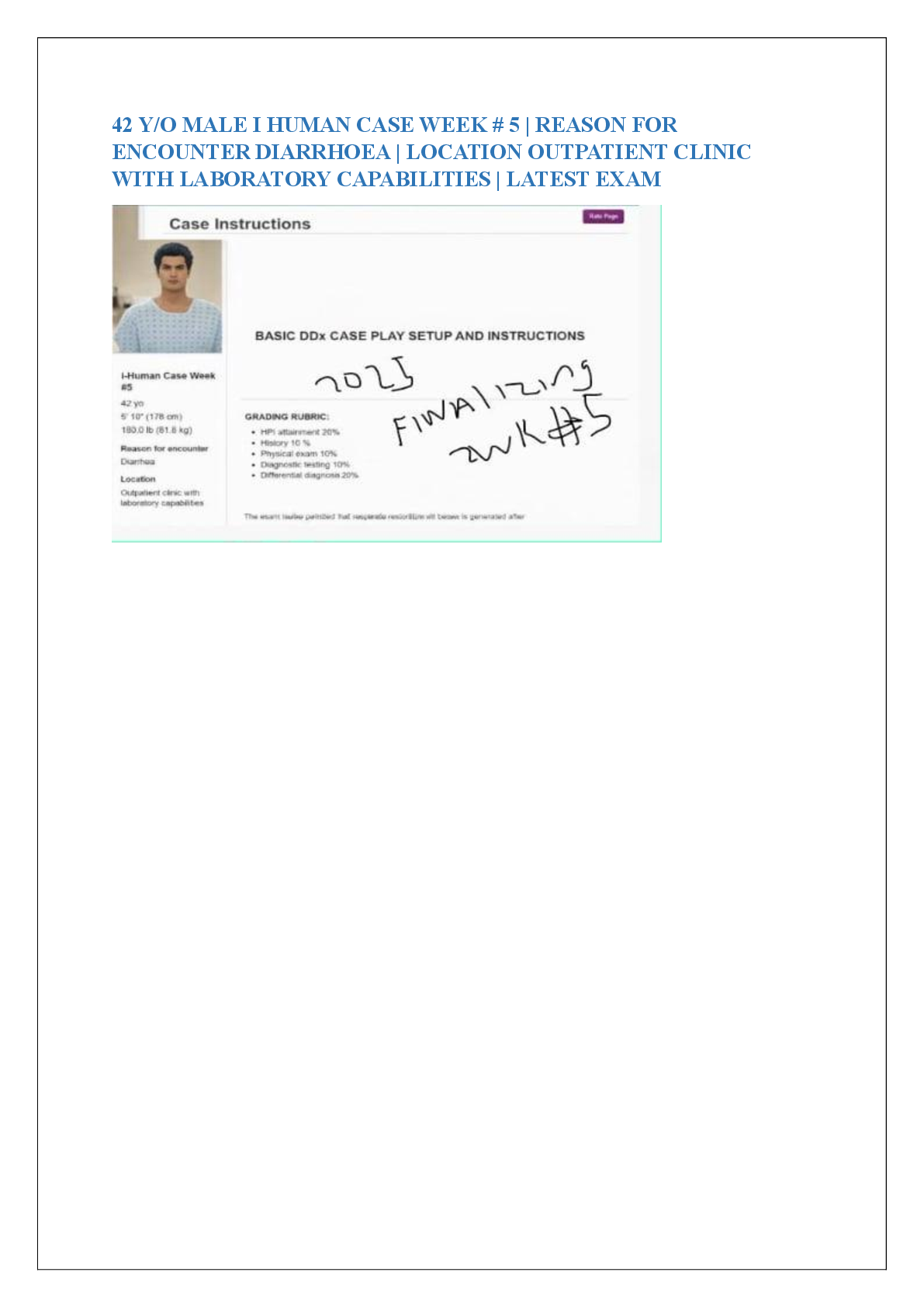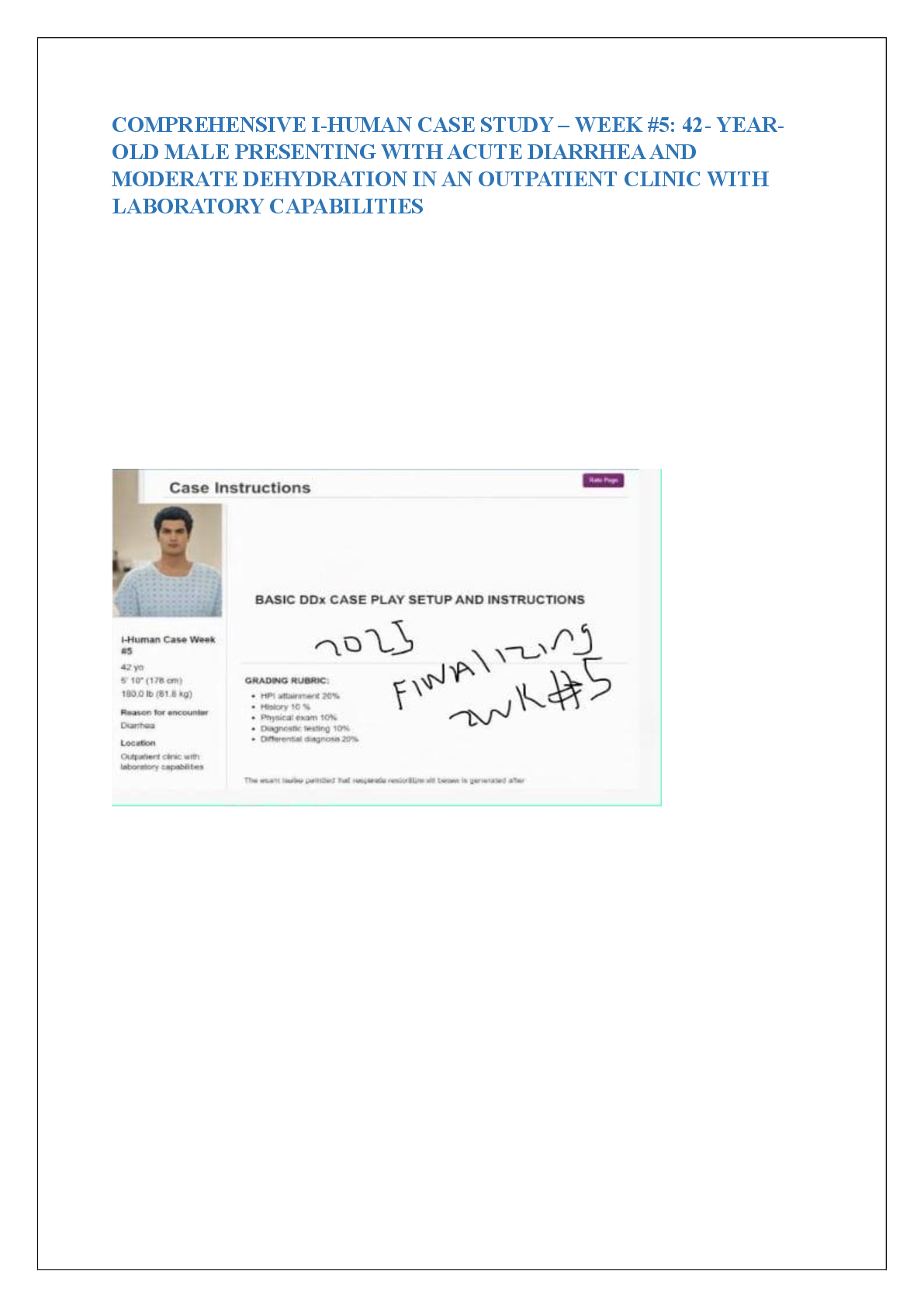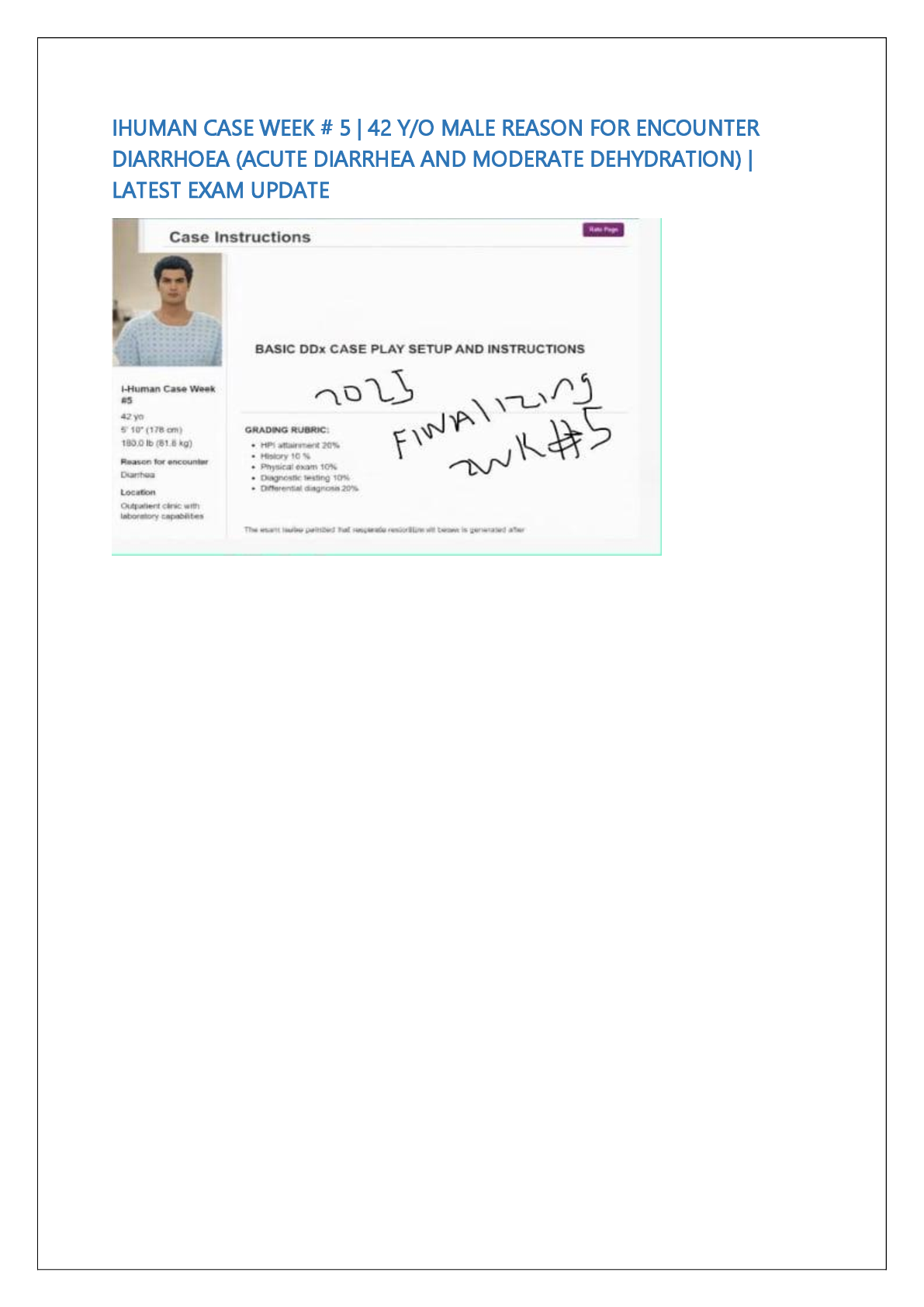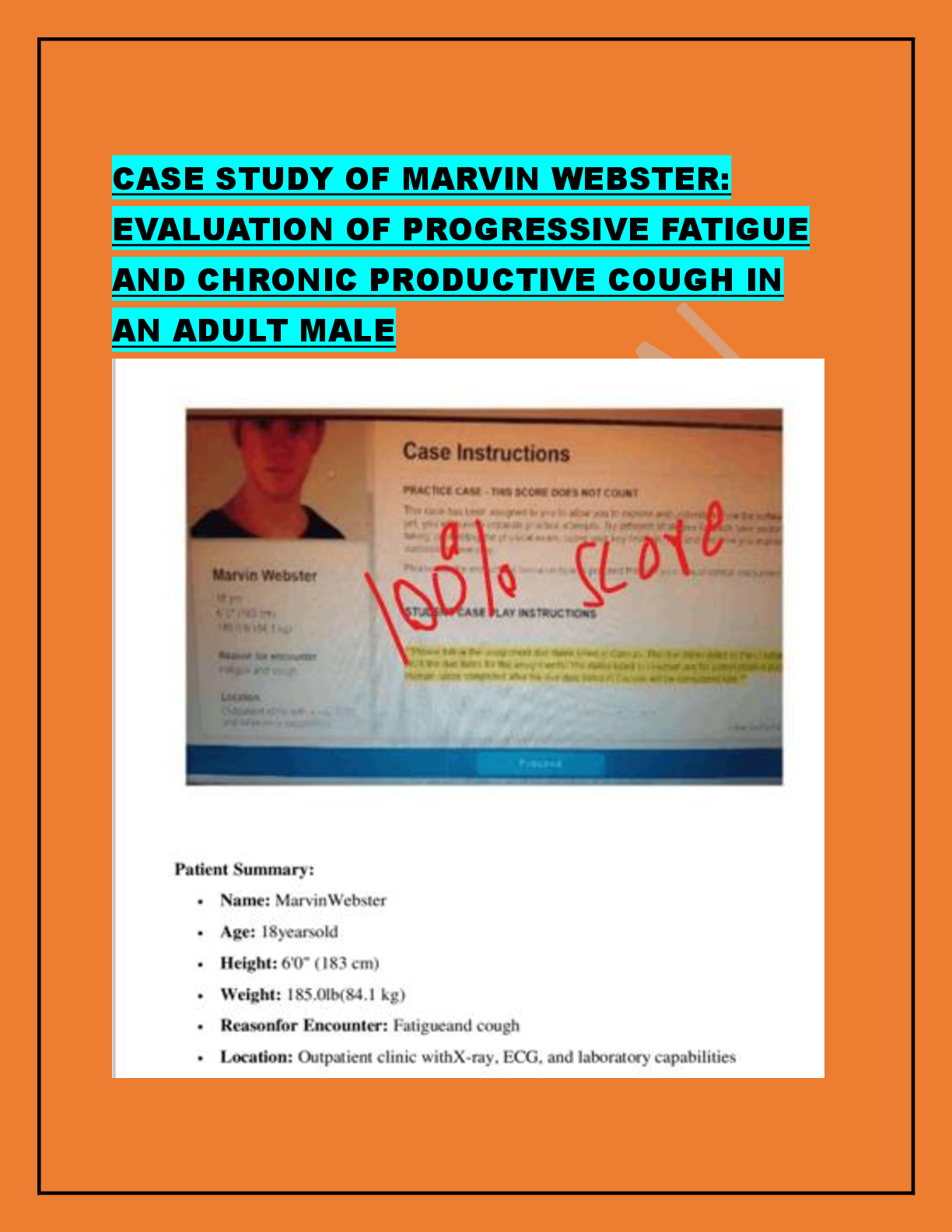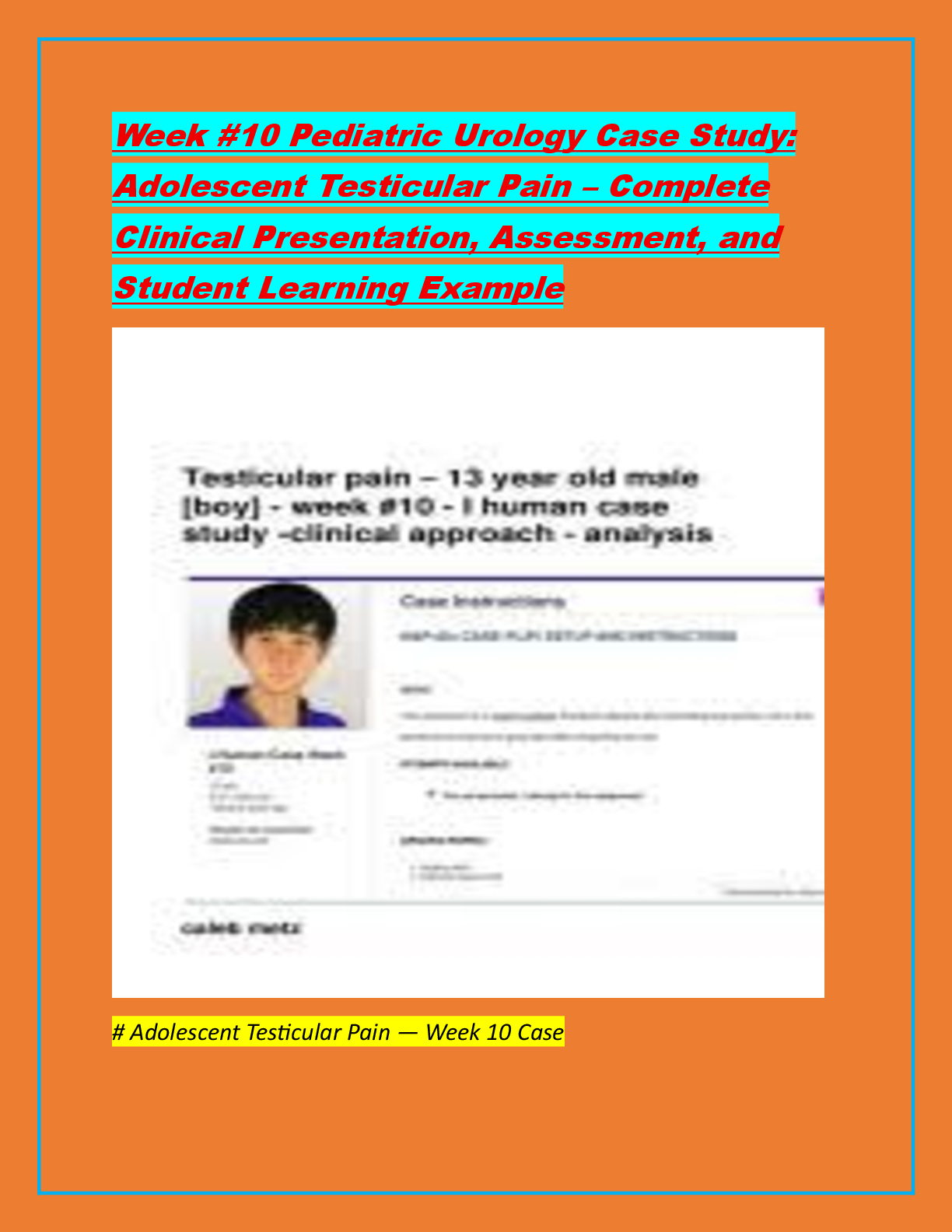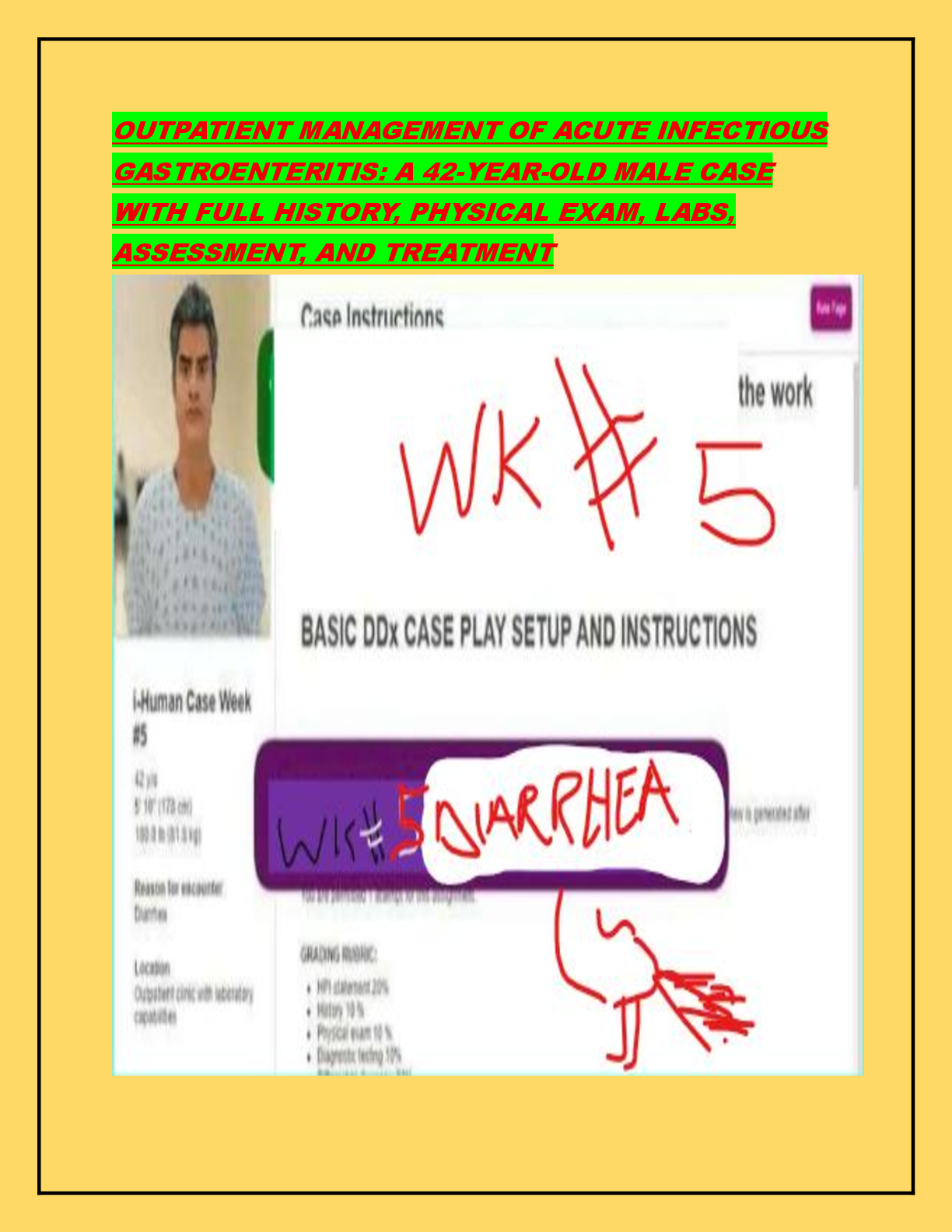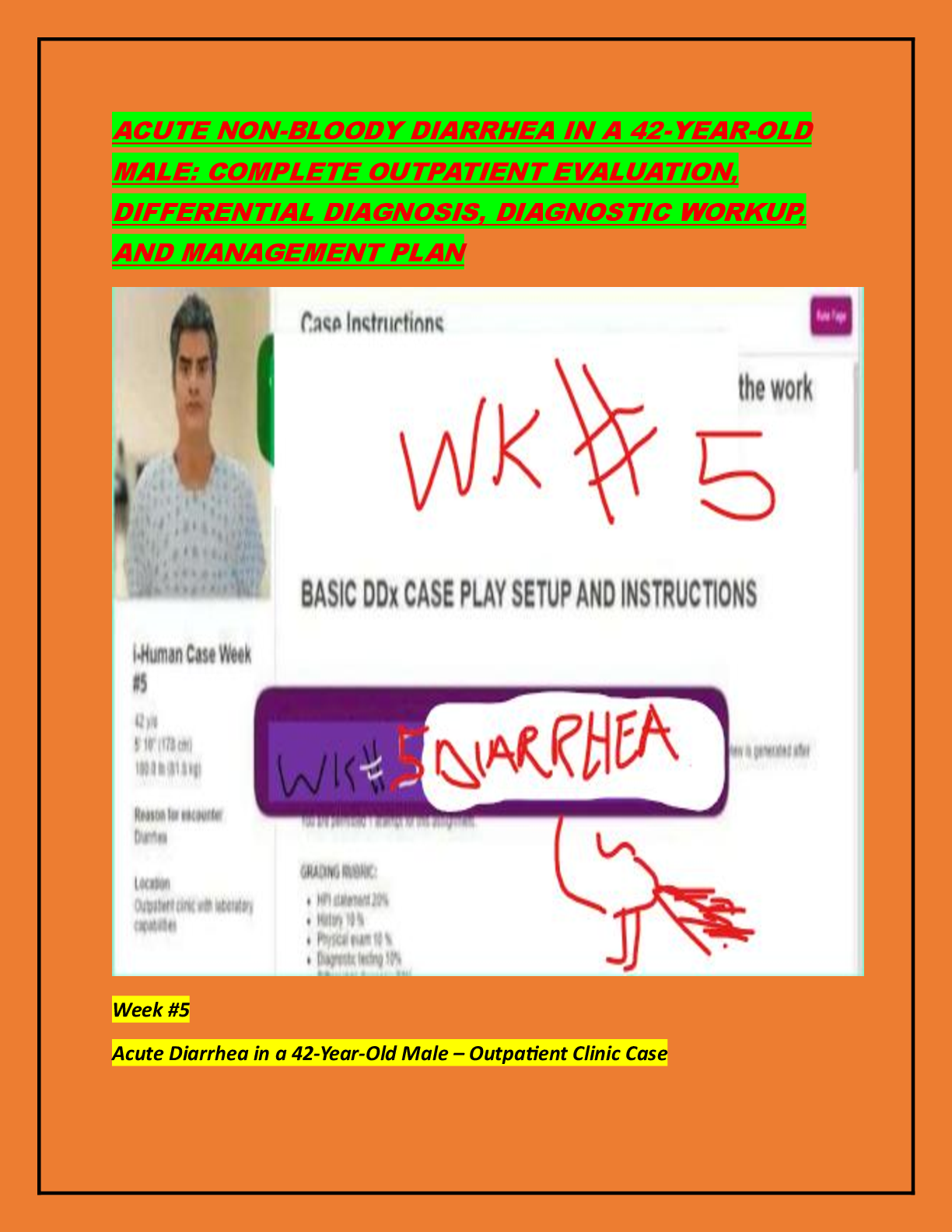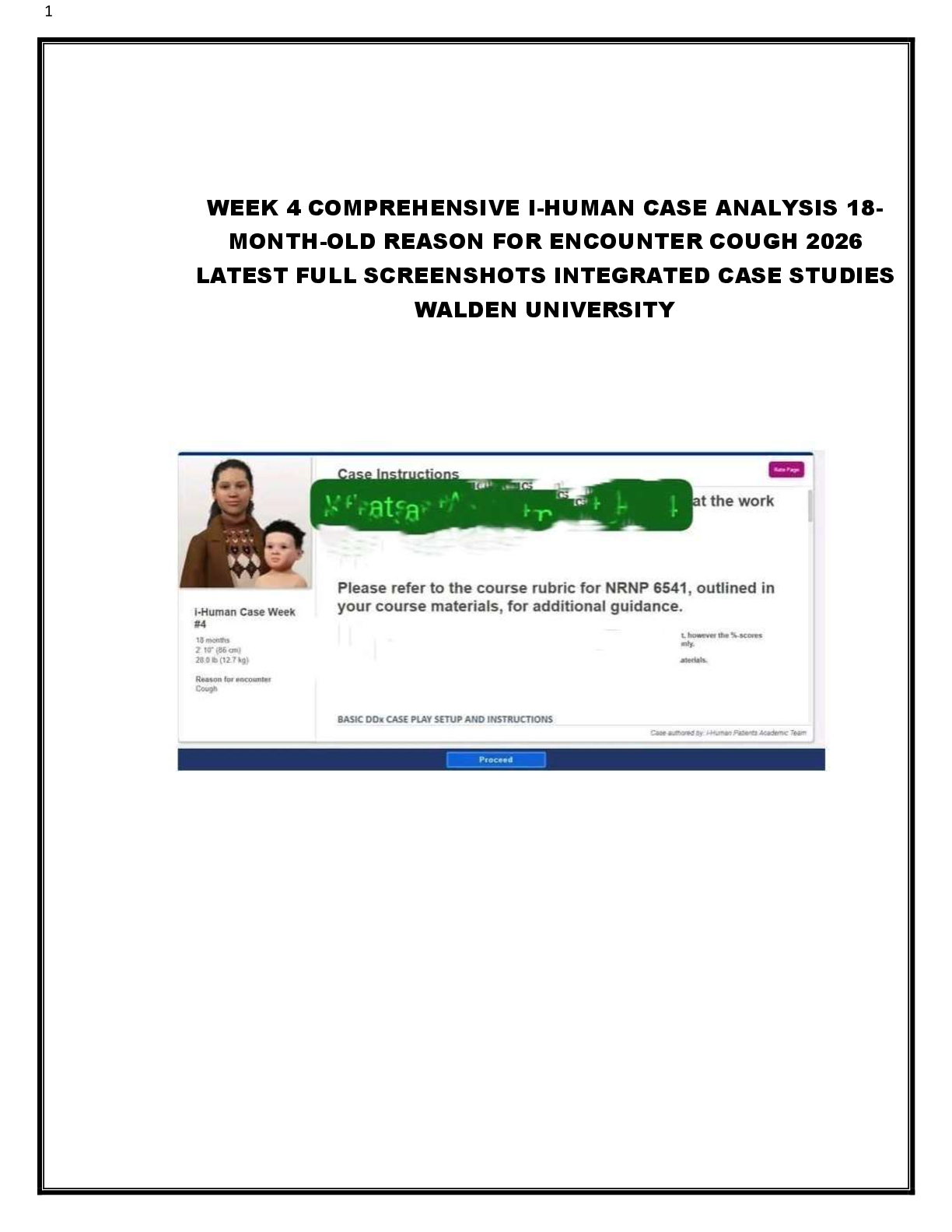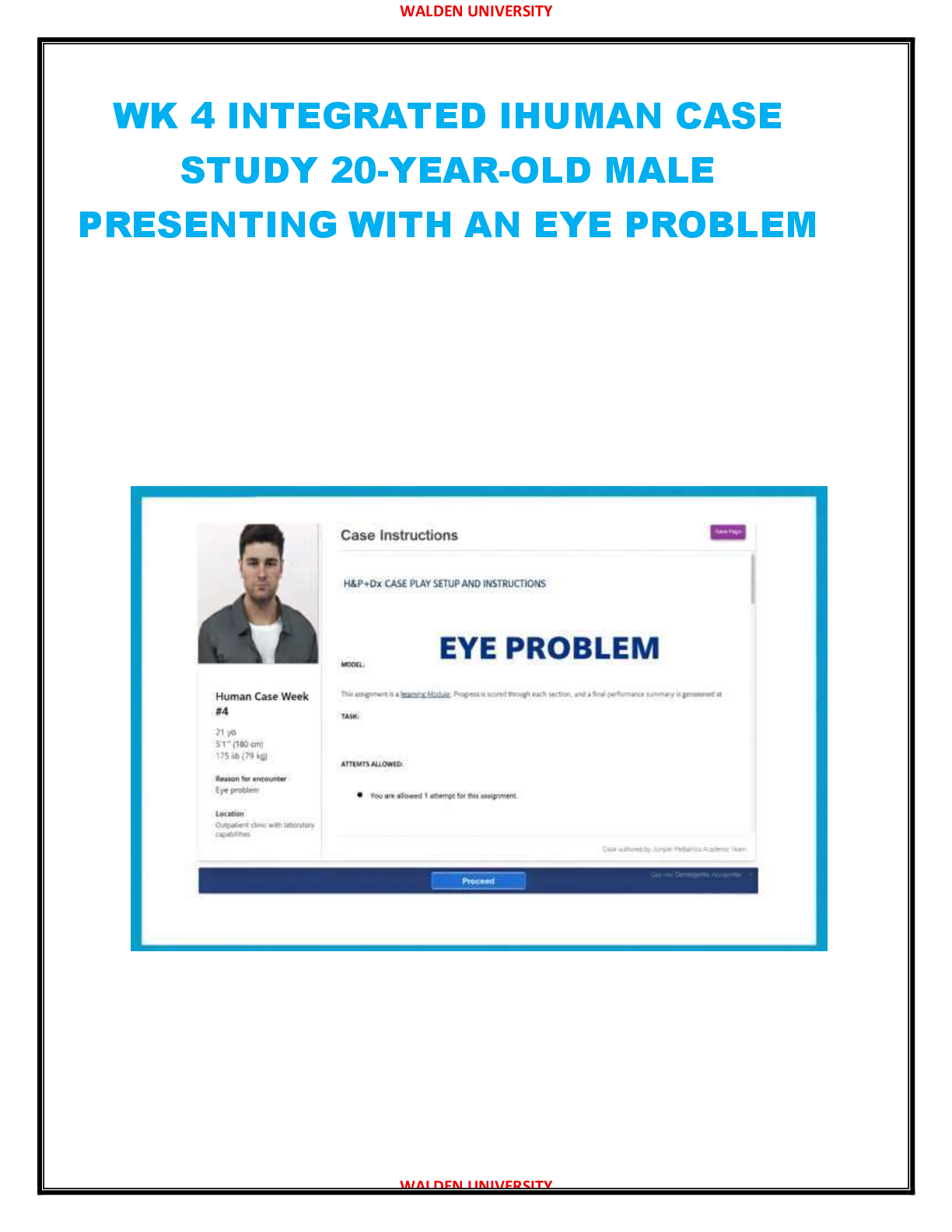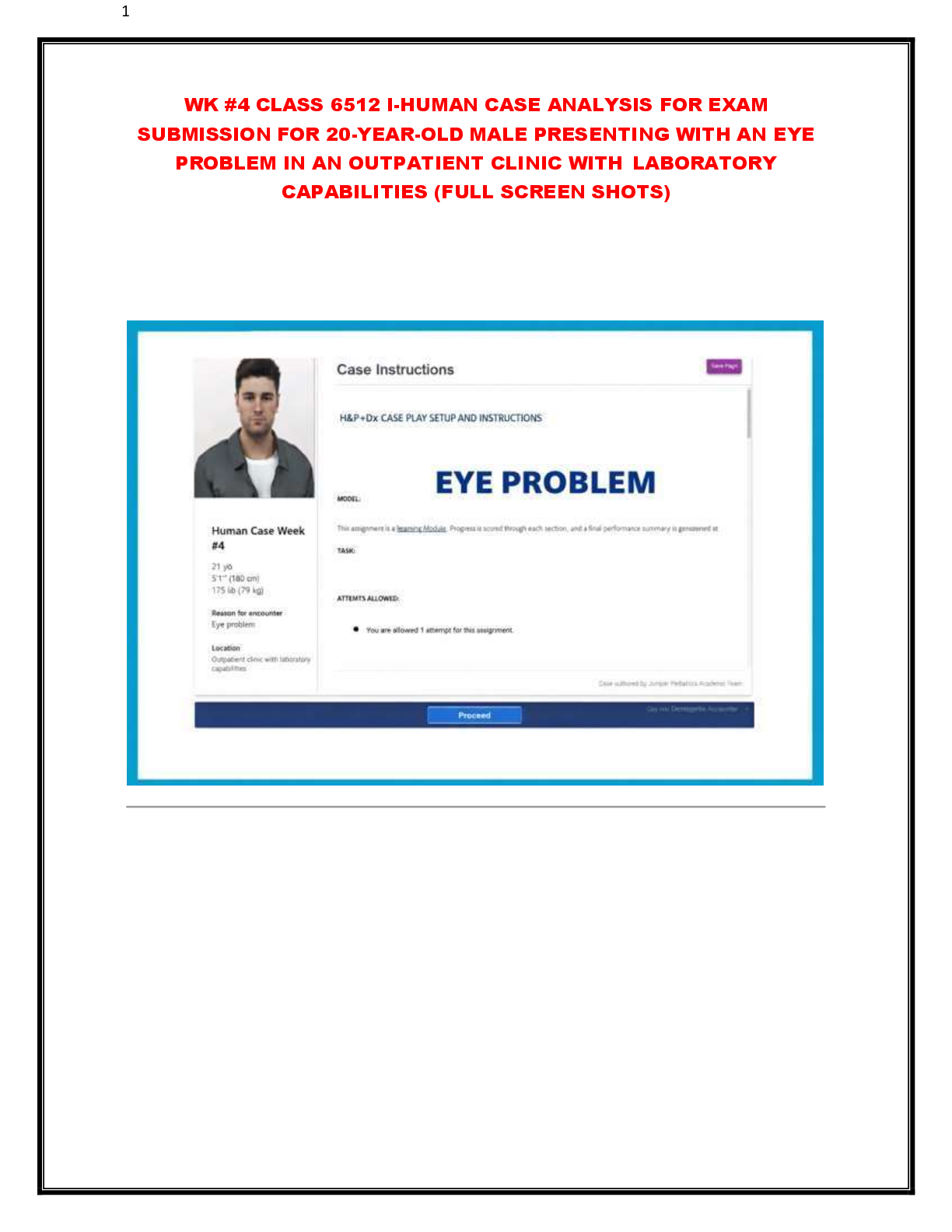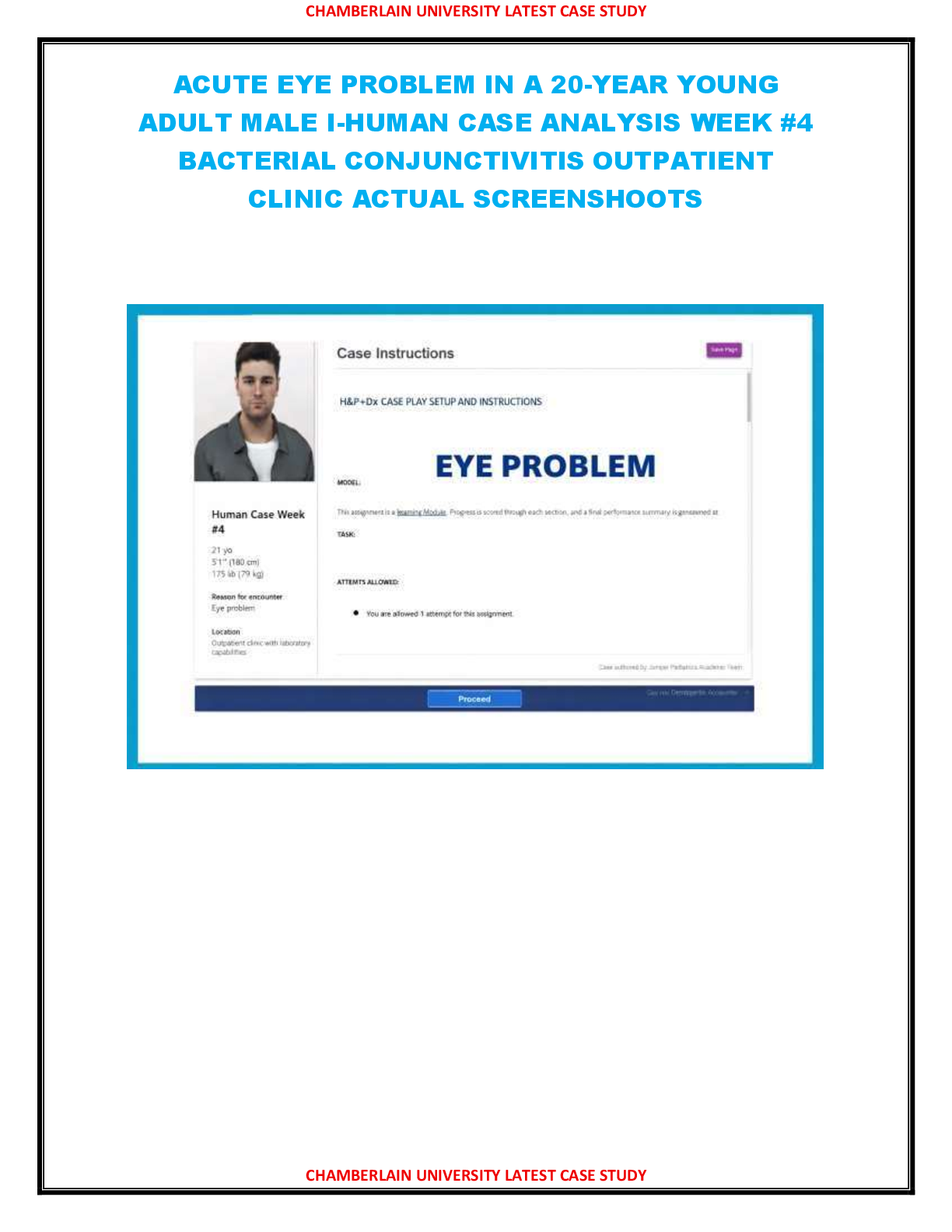*NURSING > CASE STUDY > NURSING 556Case Study SBO Part I: Small Bowel Obstruction NextGen Unfolding Reasoning (All)
NURSING 556Case Study SBO Part I: Small Bowel Obstruction NextGen Unfolding Reasoning
Document Content and Description Below
Primary Concept Elimination Interrelated Concepts (In order of emphasis) ● Patient Education ● Clinical judgment NCLEX Client Need Categories Covered in Case Study NCSBN Clinical Judgment ... Model Covered in Case Study Safe and Effective Care Environment Step 1: Recognize Cues ✔ ● Management of Care ✔ Step 2: Analyze Cues ✔ ● Safety and Infection Control Step 3: Prioritize Hypotheses ✔ Health Promotion and Maintenance ✔ Step 4: Generate Solutions ✔ Psychosocial Integrity Step 5: Take Action ✔ Physiological Integrity Step 6: Evaluate Outcomes ✔ ● Basic Care and Comfort ● Pharmacological and Parenteral Therapies ✔ ● Reduction of Risk Potential ✔ ● Physiological Adaptation ✔ Present Problem: Part I: Initial Nursing Assessment Mary O’Reilly is a 55-year-old woman with a prior history of partial colectomy w/colostomy and small bowel obstruction three months ago that resolved with bowel rest and required no surgical intervention. Three days ago Mary developed a sudden onset of sharp generalized abdominal pain with nausea, vomiting and decreased output from her colostomy bag. She has had two small glasses of water today. Mary is admitted to the medical/surgical unit and you will be the nurse caring for her. You receive the following highlights of report from the emergency department (ED) nurse: ● CT of her abdomen/pelvis revealed high-grade small bowel obstruction. ● Lactate 2.8, WBC 14.7, Sodium 143, Potassium 3.7, Creatinine 1.35 ● An NG was placed and she is on low intermittent suction. She had NG output of 225 mL of bile green liquid. ● Received hydromorphone 0.5 mg IV for pain one hour ago. Abdominal pain decreased from 9/10 to 3/10 and she is resting more comfortably. ● Abd. is firm, slightly distended, with tympanic bowel sounds. ● Initial HR/BP was 102 and 92/48. ● Most recent vital signs: T: 99.8 (o) P: 78 (reg) R: 18 BP: 108/52 after 1000 mL 0.9% NS bolus 20 g. peripheral IV in left forearm. What data from the history are RELEVANT and must be NOTICED as clinically significant by the nurse? (NCSBN: Step 1 Recognize cues/NCLEX Reduction of Risk Potential) RELEVANT Data from Present Problem: Clinical Significance: - Partial colectomy w/ colostomy - Small bowel obstruction 3 months ago - Sudden onset of sharp pain with N/V, decreased output from colostomy bag - Small bowel obstruction - Lactate 2.8 (HIGH) - WBC 14.7 (HIGH) - Creatinine 1.35 (HIGH) - Indicates patient cannot excrete normally due to partial colectomy - Highly likely that current problem is a small bowel obstruction since she has a history of it - S/S indicate small bowel obstruction. S/S also indicate pt may have electrolyte imbalances d/t obstructed digestion - CT reveals pt does, indeed, have an SBO - Normal = 0.5-1. High levels may indicate Type B lactic acidosis d/t regional ischemia. - Normal = 4-11K. High WBC’s may indicate infection and/or physical or emotional stress. - Normal = 07-1.2. Elevated creatinine levels signify impaired kidney function or kidney disease. Dehydration can also cause this, which is supported by patient’s recent vomiting. [Show More]
Last updated: 3 years ago
Preview 1 out of 13 pages
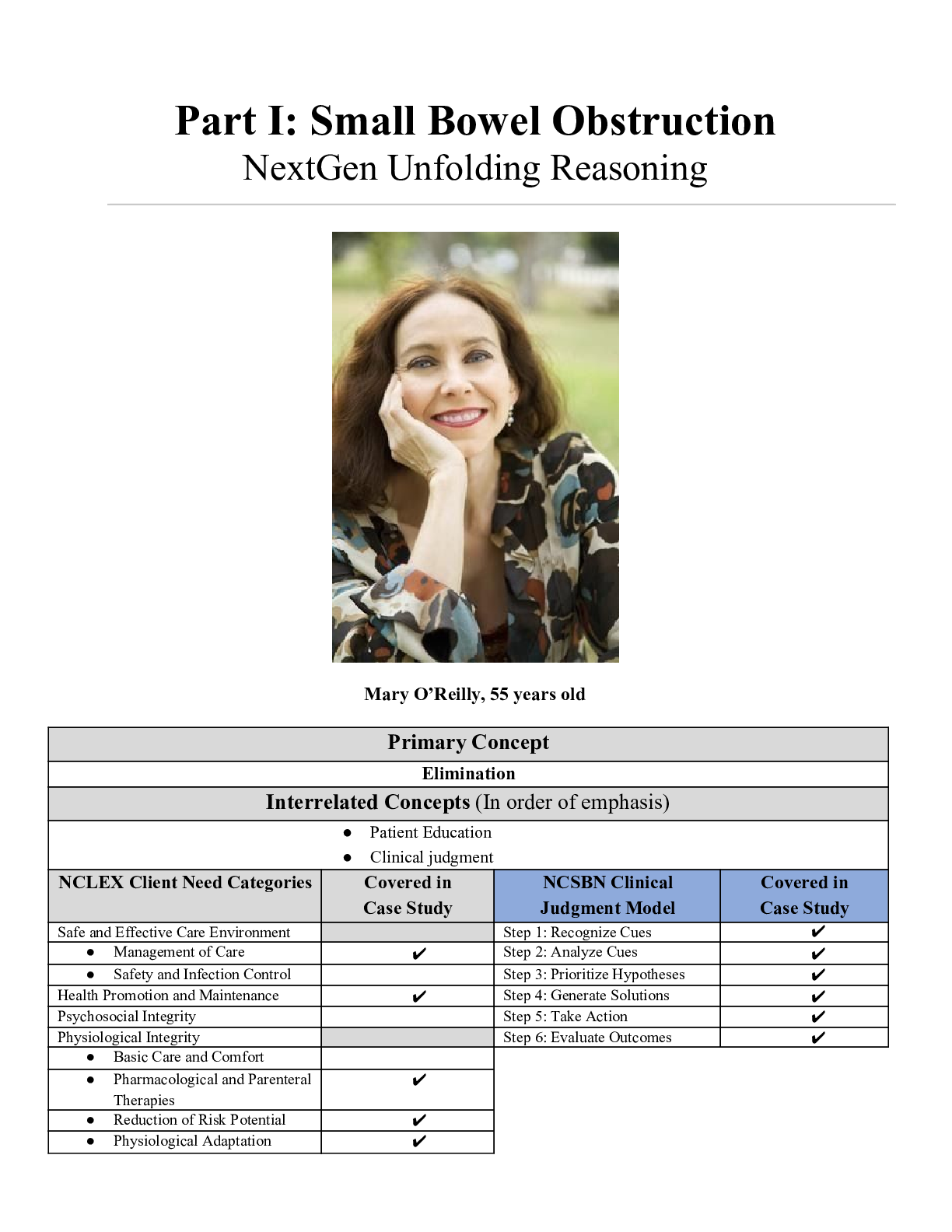
Buy this document to get the full access instantly
Instant Download Access after purchase
Buy NowInstant download
We Accept:

Reviews( 0 )
$8.50
Can't find what you want? Try our AI powered Search
Document information
Connected school, study & course
About the document
Uploaded On
Sep 07, 2021
Number of pages
13
Written in
All
Additional information
This document has been written for:
Uploaded
Sep 07, 2021
Downloads
0
Views
123












